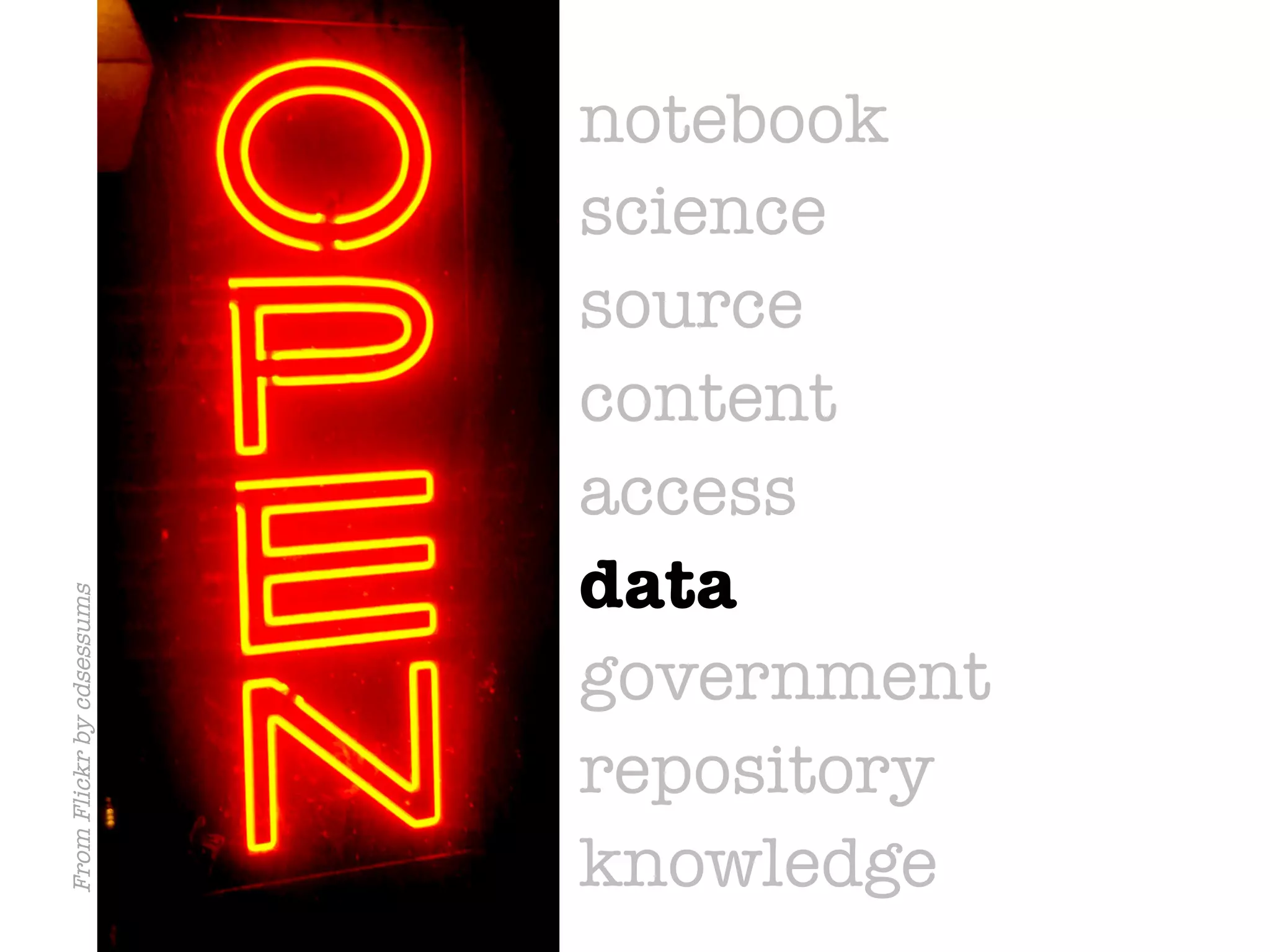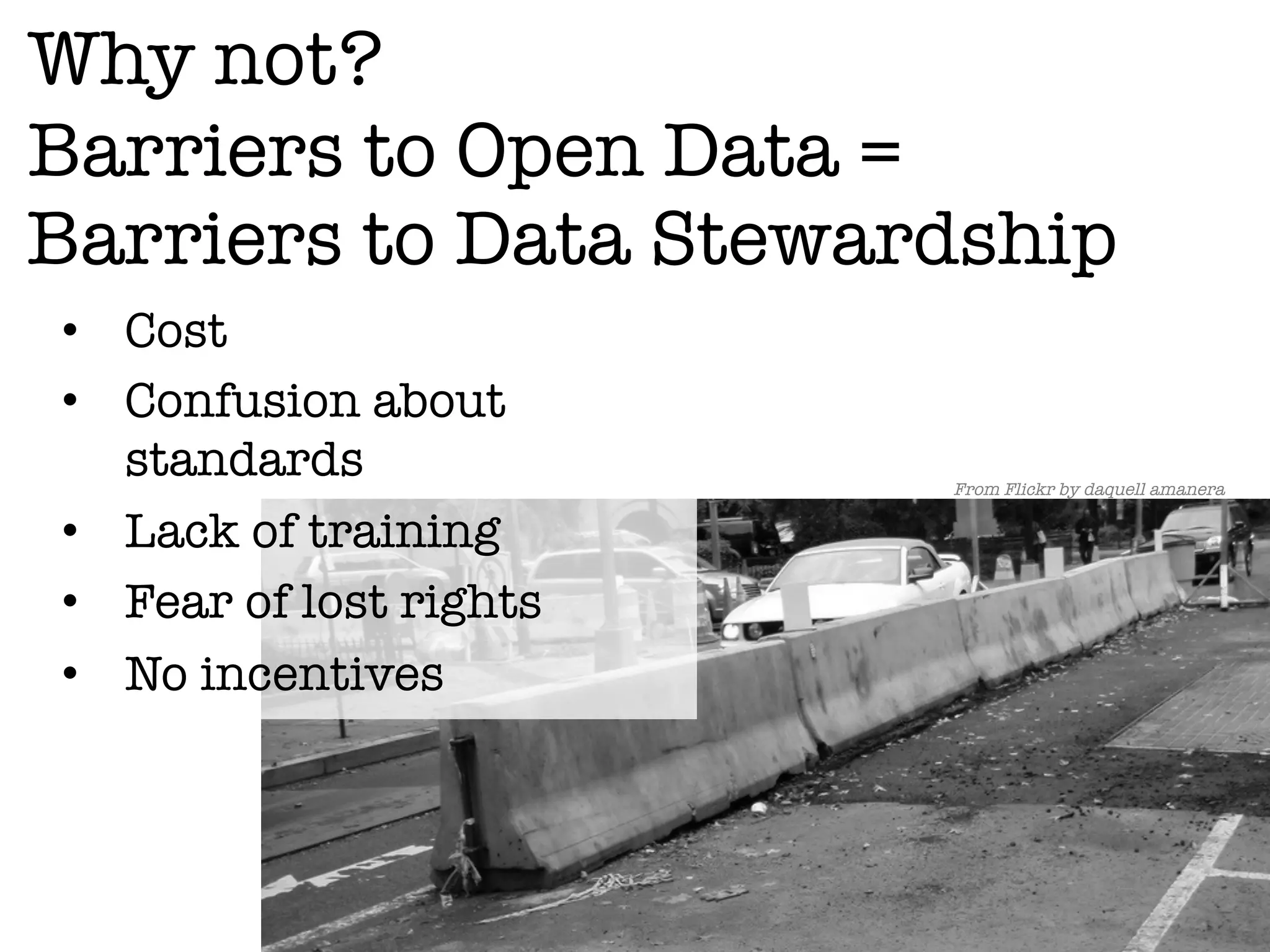The document discusses the importance of open science and the obligation of scientists to ensure reproducibility and trustworthiness in their work. It outlines the benefits of open access to scientific data and publications, as well as the challenges faced in implementing open data policies. Additionally, it highlights the need for a cultural shift towards data stewardship and the public availability of research outputs.
















































